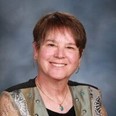

By Sarah Ellery and Sally Marks
Published in the Jewish News, September 13, 2021
A friend of mine has breast cancer. She is one of many women I’ve known who have suffered from this disease. Fortunately, it was caught in time, and with the aggressive treatment, she will survive.
Many are not so lucky.
Some 1 in 8 women will get breast cancer in their lifetime. Those are frightening statistics. However, in the Jewish community, the statistics indicate a gloomier scenario. Women of Ashkenazi Jewish heritage (Eastern European descent) are at a higher risk for developing breast cancer due to the high prevalence of BRCA1 and BRCA2 (BRCA1/2) inherited gene mutations. This type of breast cancer attacks younger women and is more deadly than the breast cancer found in older women. Many develop this cancer before the age of 40, which is the recommended age for a baseline mammogram.
That is one reason even young women, especially young, Jewish women, should learn how to do a self-breast exam and schedule an annual exam with their obstetrician/gynecologist. Those with Ashkenazi heritage should be even more vigilant. Mothers in our community are advised to tell their daughters, nieces, and granddaughters of this risk.
Detecting breast cancer when it is early in the process is optimal. However, women with breast cancer (regardless of age or ancestral heritage) need support. Fortunately a local non-profit, My Hope Bag can help.
When diagnosed with breast cancer, one may have a plethora of thoughts from “who will take care of my children” to “how will we pay for all the treatments”? Those are normal thoughts but having an annual mammogram can help reduce one’s probability of assuming the disease. A mammogram is like an X-ray of the breast. It can detect breast cancer up to two years before the tumor can be felt by you or your doctor. Many are diagnosed two to three years into the tumor’s growth. What could have been a lighter diagnosis may be more severe because of a missed mammogram.
After diagnosis, questions explode regarding what to do next. There are many nonprofits that can help with specific areas of concern My Hope Bag is an organization that directs the newly diagnosed breast cancer warrior (bc warrior) to My Hope Bag’s extensive resource guide. The bc warrior is visited by a My Hope Bag “Hope Sister” who engages in conversation regarding the bc warrior’s diagnosis and needs. The Hope Sister gifts the bc warrior with a beautiful pink tote bag filled with many comfort items including the resource guide. The bc warrior has a friend for life and the Hope Sister keeps in touch until the bc warrior has completed her treatments. Strong bonds are formed from these friendships. Many of the breast cancer warriors wish to “pay it forward” and become volunteers themselves.
During her treatments, the bc warrior may contact My Hope Bag for needs including groceries, gas cards to assist with getting to treatments, medical co-pays, and even family outings when available. My Hope Bag also provides the cost of a screening mammogram for those who qualify. A future goal of My Hope Bag is to open a respite center for those going through breast cancer treatments to have a place to relax, sip on coffee or tea, and visit with other survivors in the non-intimidating comfort of those with whom they can relate.
Whether you received a breast cancer diagnosis, know someone with breast cancer, or are simply someone who wants to donate funds or become a sponsor, there are many ways to help. My Hope Bag invites you to view their website, www.myhopebag.org, or write to sarah@myhopebag.org, for further information or to request a Hope Bag.
